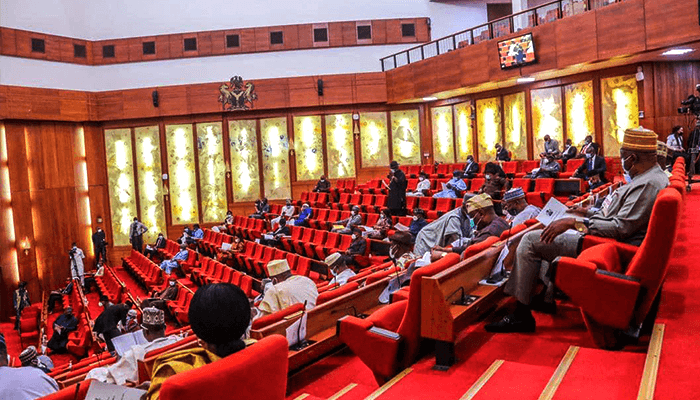Nigeria may soon have a coordinated national response to autism following the Senate’s consideration of a Bill to establish a National Centre for Autism with six zonal branches for research, diagnosis, education, and care.
The Bill, sponsored by Senator Natasha Akpoti-Uduaghan (Kogi Central), seeks to promote early detection and intervention for individuals with Autism Spectrum Disorder (ASD) while addressing training gaps among teachers, health workers, and caregivers.
Mayo Clinic defines ASD as a condition related to brain development which affects how people see others and socialize with them.
During her lead presentation on the Bill titled “An Act to Establish the National Centre for Autism and Six Zonal Centres for Autism Diagnosis, Research, Education, and Care; and for Related Matters,” Senator Akpoti-Uduaghan described the initiative as “long overdue and critical to Nigeria’s social and public health development.”
Read Also: Kim Kardashian battles emotional stress after brain aneurysm diagnosis
She said the proposed law would institutionalise early diagnosis, strengthen professional capacity, and create a framework for nationwide inclusion and awareness.
According to the senator, the centres will be located in Kaduna, Bauchi, Enugu, Port Harcourt, Ibadan, and Abuja, with the national headquarters in Abuja coordinating research, training, and policy development.
She explained that the proposed law seeks to provide a coordinated federal approach to autism by institutionalising early diagnosis and ensuring that individuals, regardless of location or financial status, have access to quality care and education.
While citing World Health Organisation (WHO) data, the Senator noted that 1 in 100 children globally is diagnosed with autism. However, she stressed that Nigeria’s actual figures could be much higher, given the country’s limited diagnostic capacity and low public awareness.
She noted that the absence of a national framework has left families struggling with poor or expensive private options.
The proposed law would create a central coordinating centre in Abuja and six zonal centres across Kaduna, Bauchi, Enugu, Port Harcourt, Ibadan, and Abuja, offering diagnostic, therapeutic, and educational services.
The centres will offer diagnostic, therapeutic, and educational services, serve as referral hubs for state-level facilities, and spearhead community-based awareness campaigns.
Akpoti-Uduaghan decried the widespread misconceptions surrounding autism, noting that many children are mislabeled as stubborn, mentally ill, or possessed, leading to rejection, abuse, and lifelong exclusion.
“Teachers are ill-equipped to manage these learners, hospitals lack diagnostic capacity, and parents face enormous emotional and financial strain,” she added.
Lawmakers across party lines commended the Bill, describing it as a major step toward inclusion and institutional reform.
Senate President Godswill Akpabio referred the Bill to the Senate Committee on Health (Secondary and Tertiary) for further legislative work, urging the committee to engage stakeholders and ensure the framework reflects Nigeria’s realities.
If passed, the legislation will be the first comprehensive federal law dedicated to autism diagnosis, care, and inclusion in Nigeria’s history.



